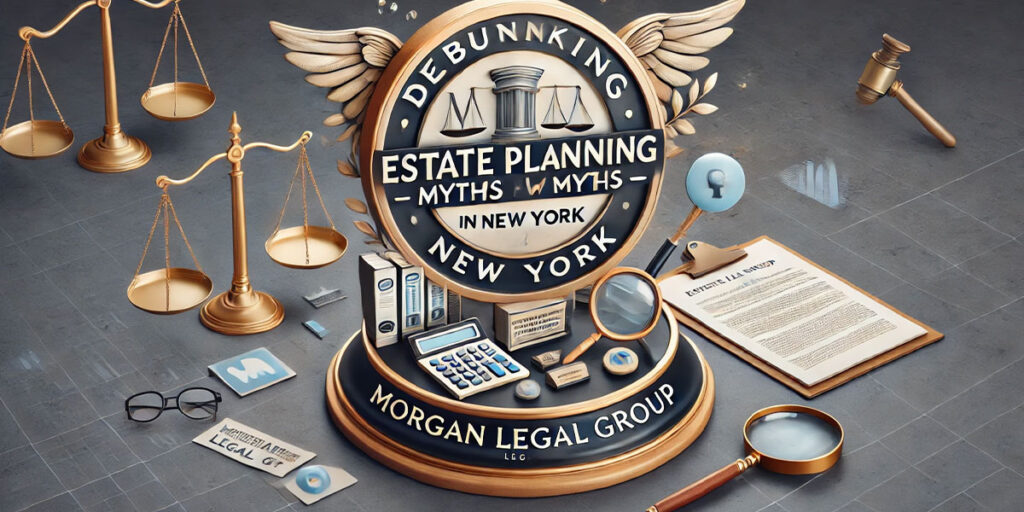Debunking Misinformed Myths About Estate Planning in New York
Estate planning is an essential process that ensures your assets, healthcare decisions, and personal wishes are respected and executed after your passing or in the event of incapacity. Yet, myths and misinformation surrounding estate planning often deter individuals from starting this crucial process. At Morgan Legal Group, we aim to provide clarity and confidence to New Yorkers by dispelling these myths and highlighting the practical truths of estate planning in 2024.
Understanding Estate Planning Myths
Despite its importance, estate planning remains shrouded in misconceptions. These myths can cause unnecessary delays, financial losses, and emotional distress for families. By addressing these inaccuracies head-on, we help our clients make informed decisions and secure their legacies.
Myth 1: Estate Planning is Only for the Wealthy
One of the most pervasive myths is that estate planning is exclusively for individuals with significant wealth or vast estates. This misconception couldn’t be further from the truth. Estate planning is relevant for anyone who owns assets, has dependents, or wishes to document their healthcare preferences.
Reality: Whether you own a single property, have a modest savings account, or simply want to name guardians for your children, estate planning ensures your wishes are honored. It also reduces legal hurdles for your loved ones during difficult times.
Myth 2: A Will is All You Need
Many people believe that drafting a will is sufficient for a comprehensive estate plan. While a will is a critical component, it is only one piece of the puzzle.
Reality: A robust estate plan often includes additional documents such as powers of attorney, healthcare proxies, trusts, and advanced directives. These elements address incapacity, reduce tax liabilities, and provide more control over how your assets are distributed.
Myth 3: Estate Planning is a One-Time Task
Another common misconception is that estate planning is a one-and-done process. Many individuals create a plan and never revisit it, assuming it remains relevant indefinitely.
Reality: Estate plans should evolve with your life circumstances. Major events such as marriage, divorce, the birth of a child, or acquiring new assets necessitate updates. Regular reviews ensure your plan remains accurate and effective.
Practical Reasons to Begin Estate Planning Now
Postponing estate planning often leads to unforeseen challenges and disputes. Understanding the practical benefits of starting now can motivate you to take action.
1. Avoiding Probate
Without an estate plan, your assets may go through probate—a lengthy and public legal process that determines asset distribution. Proper estate planning can help your family avoid this hassle.
2. Reducing Tax Liabilities
New York State imposes estate taxes that can significantly reduce the inheritance your beneficiaries receive. Strategic planning minimizes these taxes, preserving more of your legacy for your loved ones.
3. Protecting Minors
For parents of young children, naming a guardian in your estate plan ensures their care aligns with your wishes if something happens to you.
4. Planning for Incapacity
Estate planning is not just about asset distribution. Advanced directives, such as healthcare proxies and powers of attorney, allow you to designate trusted individuals to make decisions if you become incapacitated.
5. Peace of Mind
Perhaps the most compelling reason to plan your estate is the peace of mind it provides. Knowing your affairs are in order allows you to focus on what truly matters—spending time with loved ones and pursuing your passions.
Misconceptions About Trusts
Trusts are powerful estate planning tools that often come with their own set of myths. Understanding the truth about trusts can help you decide if they are right for your plan.
Myth 4: Trusts Are Only for the Rich
Many assume that trusts are complicated and unnecessary unless you have substantial wealth.
Reality: Trusts serve various purposes beyond wealth preservation. They can help avoid probate, provide for minors or individuals with special needs, and protect assets from creditors.
Myth 5: Setting Up a Trust is Complicated
While trusts do require legal expertise, working with an experienced attorney simplifies the process.
Reality: At Morgan Legal Group, we guide clients through the creation of trusts tailored to their unique needs, ensuring simplicity and efficiency.
Overcoming Procrastination: Take the First Step
Procrastination is one of the biggest barriers to effective estate planning. Whether due to misconceptions, fear of facing mortality, or uncertainty about where to start, delaying this process puts your family at risk.
How to Begin Estate Planning
- Assess Your Assets: Take stock of your property, savings, investments, and personal possessions.
- Define Your Goals: Consider what you want to achieve with your estate plan, such as supporting loved ones or charitable causes.
- Consult an Attorney: Partnering with an experienced estate planning lawyer ensures your plan complies with New York law.
- Create Essential Documents: Draft a will, trust, power of attorney, and healthcare proxy as appropriate for your needs.
- Review and Update Regularly: Revisit your plan every few years or after major life changes to keep it current.
Why Choose Morgan Legal Group?
At Morgan Legal Group, we specialize in creating customized estate plans that align with our client’s goals and comply with New York State laws. Our experienced attorneys provide clear guidance, address common myths, and help you navigate complex legal requirements.
Our Commitment to Clients
- Personalized Solutions: Clients receive a tailored plan that reflects their unique circumstances.
- Transparency: We explain every step of the process to ensure you feel confident and informed.
- Comprehensive Support: From initial consultation to document execution, we handle all aspects of estate planning.
Conclusion: Separate Myths from Facts
Estate planning myths can create unnecessary obstacles, but with the right knowledge and support, you can build a secure future for yourself and your loved ones. By debunking these misconceptions and taking proactive steps, you ensure your wishes are respected and your legacy preserved.
Contact Morgan Legal Group today to schedule a consultation and confidently plan your estate. Together, we’ll set the record straight and create a plan that meets your needs and goals.









